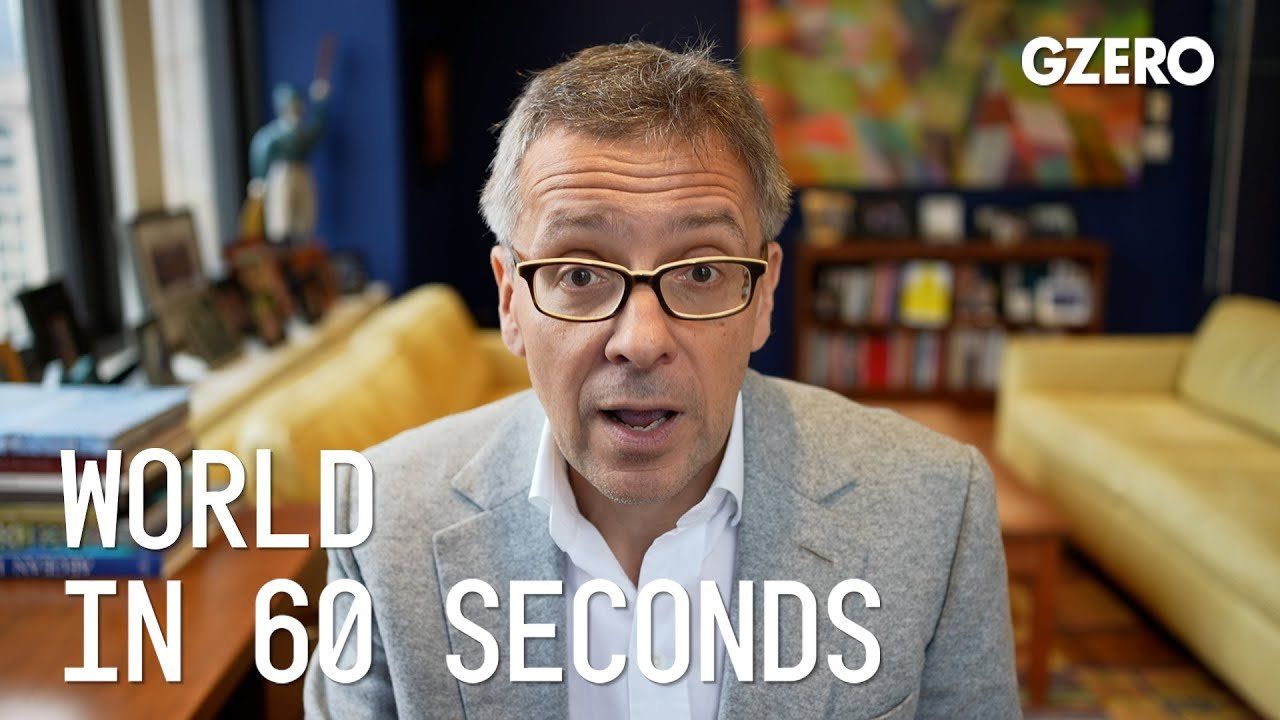Ian Bremmer shares his insights on global politics this week on World In :60.
What do you make of Putin's speech addressing Prigozhin's mutiny?
Well, I mean, he didn't mention Prigozhin by name. Prigozhin is still, at least as of now, we think, a free man. But he has said that the people responsible are going to be held accountable. And that kind of means Prigozhin and his top lieutenants. I expect that they are not going to be around for very much longer. Is that days? Is that weeks? Is that months? I don't know. But it is it is a danger. It is an ever present danger to Putin. The longer that they are there and talking and engaging and organizing a paramilitary organization. Most important thing is to get that group disbanded, which I'm sure Putin is working hard on right now.
Will Ukraine be able to capitalize on Russian infighting?
To a degree. There are about 11 divisions, Ukrainian divisions that are in position that have been trained and equipped by NATO. Most of the US and the UK, only two and a half of them have been actively involved in the counteroffensive, hasn't gone so well so far. But I mean, if Wagner is out of the fight largely, and if the Ministry of Defense forces are demoralized, and some of them are going to be needed back in Russia itself, clearly more capacity for the Ukrainians to take some territory back. We'll watch it carefully.
Secretary Yellen is now going to China. How will that affect US-China relations?
Two tracks. On the economic side, the Americans and the Chinese are trying to maintain a level of stability. There's a lot of interdependence there. On the security side, Taiwan, particularly as we talk about advanced technology, semiconductors, AI, it is essentially a technology Cold War and a lot of zero-sum relations in between the US and China. Managing both of those is getting harder, and accidents are getting more likely. I don't think Yellen's trip helps on that front.
More For You
Global conflict was at a record high in 2025, will 2026 be more peaceful? Ian Bremmer talks with CNN’s Clarissa Ward and Comfort Ero of the International Crisis Group on the GZERO World Podcast.
Most Popular
Think you know what's going on around the world? Here's your chance to prove it.
Indian Prime Minister Narendra Modi isn’t necessarily known as the greatest friend of Muslim people, yet his own government is now seeking to build bridges with Afghanistan’s Islamist leaders, the Taliban.
The European Union just pulled off something that, a year ago, seemed politically impossible: it froze $247 billion in Russian central bank assets indefinitely, stripping the Kremlin of one of its most reliable pressure points.
